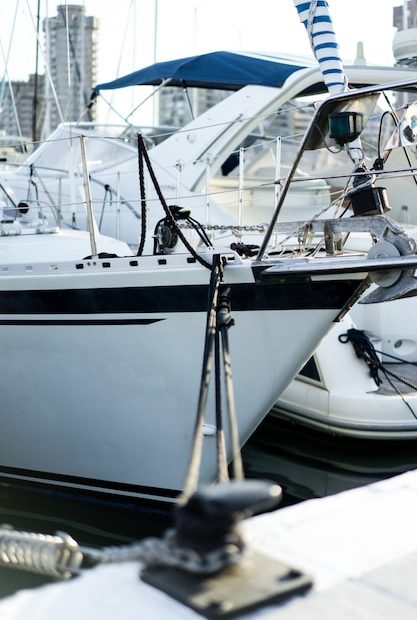Leisure Marine Battery: Powering Your Sailing Adventures
A Brief Introduction
Leisure marine batteries play a crucial role in powering various electrical systems on boats, yachts, and other recreational watercraft. Whether you are sailing for pleasure or taking part in competitive events, having a reliable and efficient battery is essential for an enjoyable experience on the water.
In this article, we will explore the importance of leisure marine batteries, their different types, key features to consider, and maintenance tips to ensure optimal performance. So, let’s dive in!
The Importance of a Reliable Battery
A leisure marine battery acts as the primary source of power for numerous electrical components on a boat. These batteries serve a range of functions, including starting the engine, providing electricity for onboard amenities, and even running navigational equipment. Therefore, it is crucial to invest in a high-quality battery to enjoy uninterrupted power supply during your boating adventures.
Types of Leisure Marine Batteries
1. Starting Batteries: Also known as cranking batteries, starting batteries are designed to provide a burst of power to start the engine. They deliver a large amount of current in a short period and are not intended for deep cycling. These batteries are usually rated in cranking amps (CA) or cold-cranking amps (CCA) to indicate their ability to start an engine in cold temperatures.
2. Deep Cycle Batteries: Unlike starting batteries, deep cycle batteries are designed to provide a steady flow of power over a longer period. These batteries are ideal for applications that require prolonged use of electrical systems without the need for engine starting capabilities. They are commonly used to power appliances, lights, and other accessories on boats.
3. Dual-Purpose Batteries: As the name suggests, dual-purpose batteries combine the features of starting and deep cycle batteries. They offer a balance between the ability to start an engine and provide continuous power for onboard electronics. While they may not excel in either function compared to specialized batteries, they offer versatility for certain boating applications.
Key Features to Consider
When choosing a leisure marine battery, several factors should be taken into consideration to ensure it meets your specific requirements. Here are some key features to consider:
1. Capacity: Battery capacity refers to the amount of energy it can store and deliver over time. It is typically measured in ampere-hours (Ah) or reserve capacity (RC). The higher the capacity, the longer the battery can power your electrical systems without requiring recharging.
2. Voltage: Most leisure marine batteries are available in 12-volt configurations. However, certain applications may require higher voltages, such as electric trolling motors, which often utilize 24-volt or 36-volt battery systems.
3. Maintenance: Some batteries require regular maintenance, including checking fluid levels and ensuring proper ventilation. Maintenance-free batteries, such as sealed AGM (Absorbent Glass Mat) and gel batteries, offer the advantage of being maintenance-free while providing reliable performance.
4. Durability: Boating environments can be harsh, with exposure to vibrations, moisture, and temperature variations. It is crucial to select a battery designed to withstand these conditions. Look for batteries that feature rugged construction and vibration resistance to ensure longevity and reliability.
5. Size and Weight: Consider the space available on your boat and the weight-bearing capacity when selecting a battery. Opting for compact and lightweight options can help optimize the available space without compromising performance.
Maintenance Tips
Proper maintenance is essential to prolong the life and optimize the performance of your leisure marine battery. Here are some maintenance tips to consider:
- Regular Inspections: Periodically inspect the battery for any signs of damage, leaks, or corrosion. Check the terminals for a secure connection and clean them if necessary.
- Charging and Discharging: Avoid overcharging or deep discharging your battery, as it can significantly reduce its lifespan. Follow the manufacturer’s guidelines for charging rates and ensure that you recharge the battery promptly after use.
- Proper Storage: If you are not using the boat for an extended period, it is recommended to remove the battery and store it in a cool and dry location. This helps prevent self-discharge and extends the battery’s overall life.
- Water Levels: For batteries that require maintenance, regularly check the water levels and top up with distilled water if necessary. Avoid overfilling, as it may lead to acid spillage and damage to the battery.
- Cleaning: Keep the battery and its terminals clean by gently wiping away any dirt and corrosion using a mixture of baking soda and water. Rinse with clean water afterward and ensure the connections are securely tightened.
Expert Insights
“Investing in a high-quality leisure marine battery is crucial for a smooth and enjoyable boating experience. It provides the necessary power to start your engine, operate various electrical systems on board, and ensures you stay connected to navigational aids. Regular maintenance and proper care are essential to maximize the lifespan and reliability of your battery.”
Conclusion
A leisure marine battery is an essential component of any boat or watercraft, providing power to start engines and operate various electrical systems. Whether you are cruising on calm waters or participating in competitive sailing events, having a reliable battery ensures an uninterrupted and pleasurable experience. Consider the different types of batteries available, their features, and maintenance requirements when making your selection. By choosing wisely and following proper maintenance practices, you can enjoy worry-free adventures on the water for years to come.



